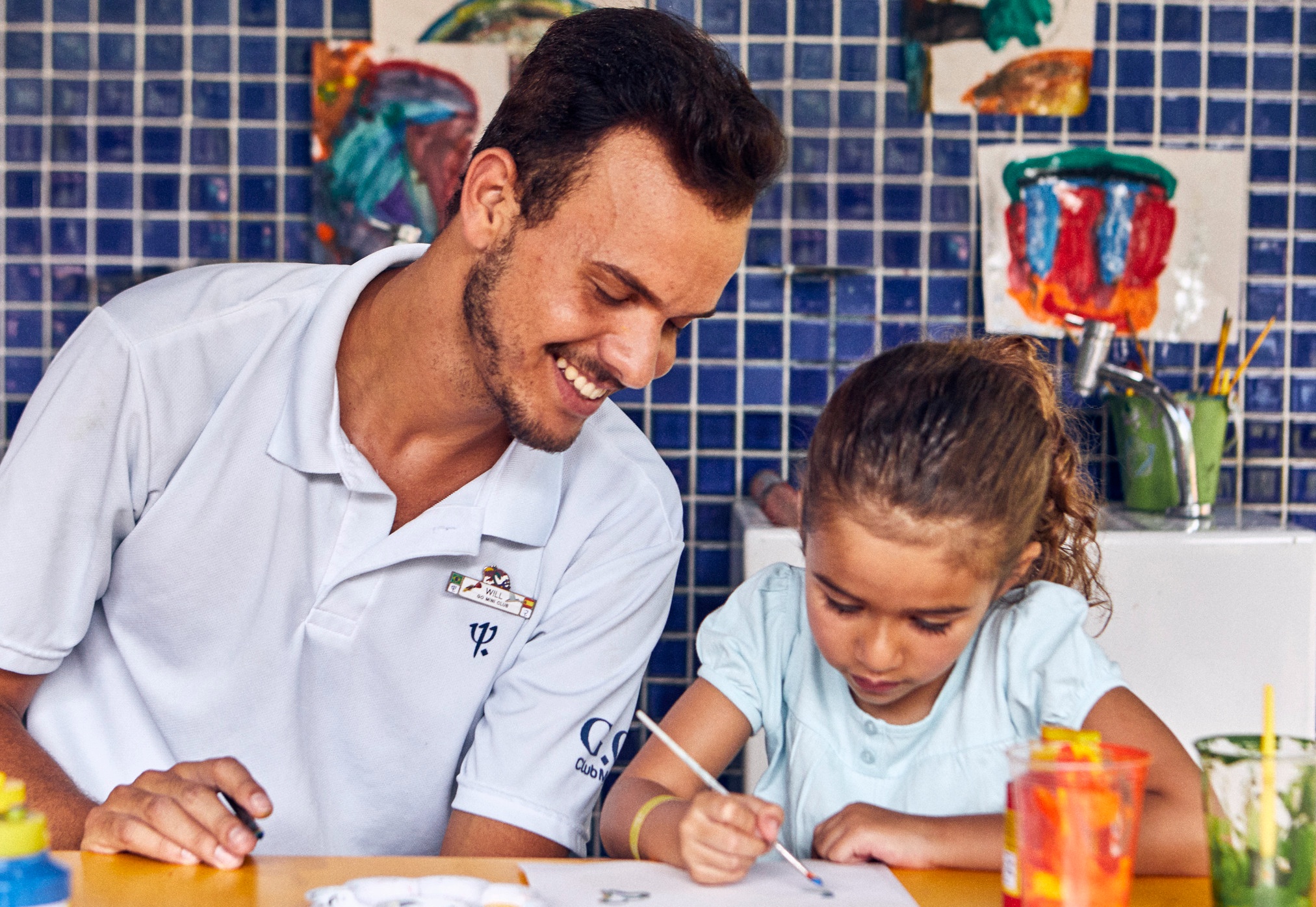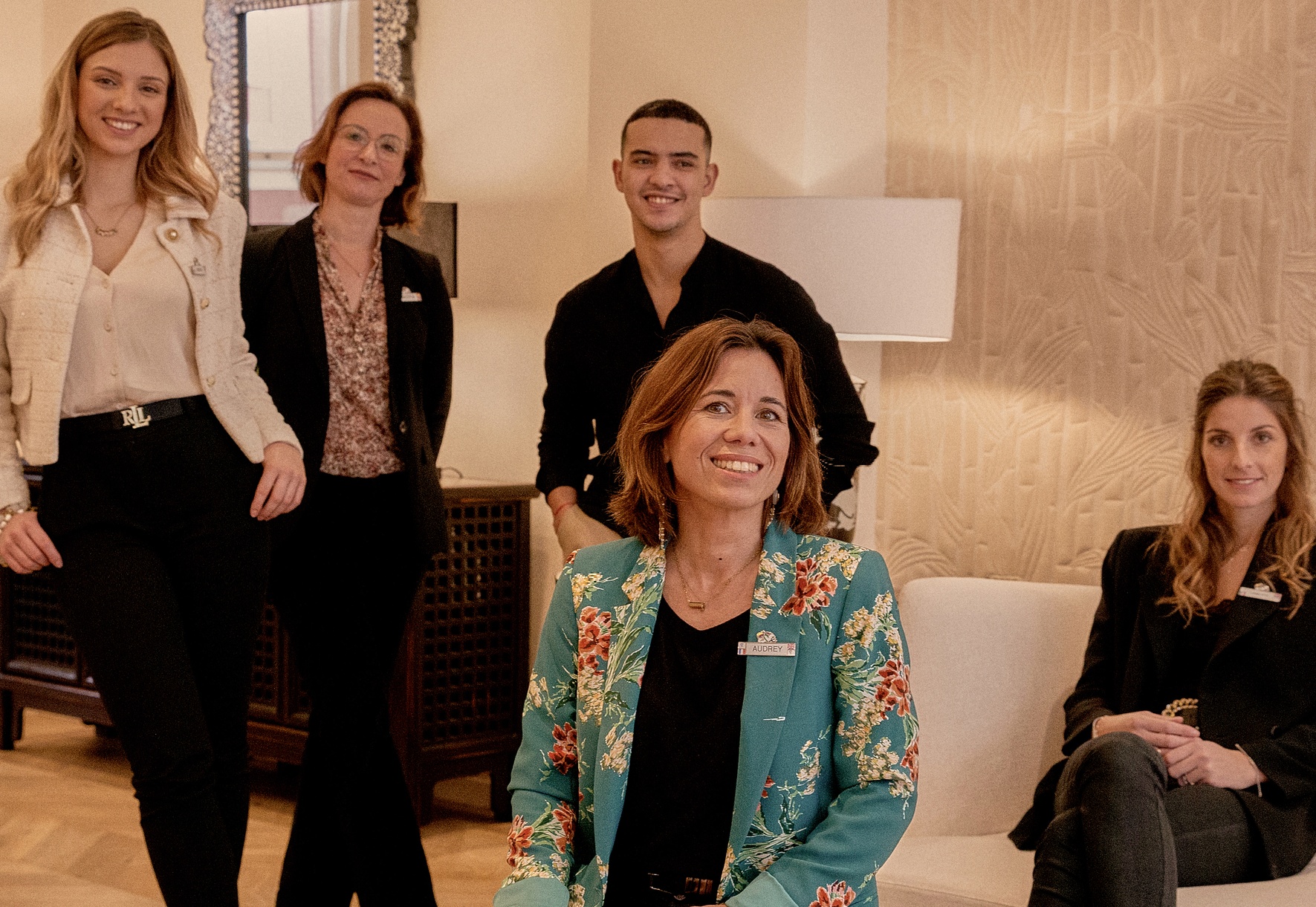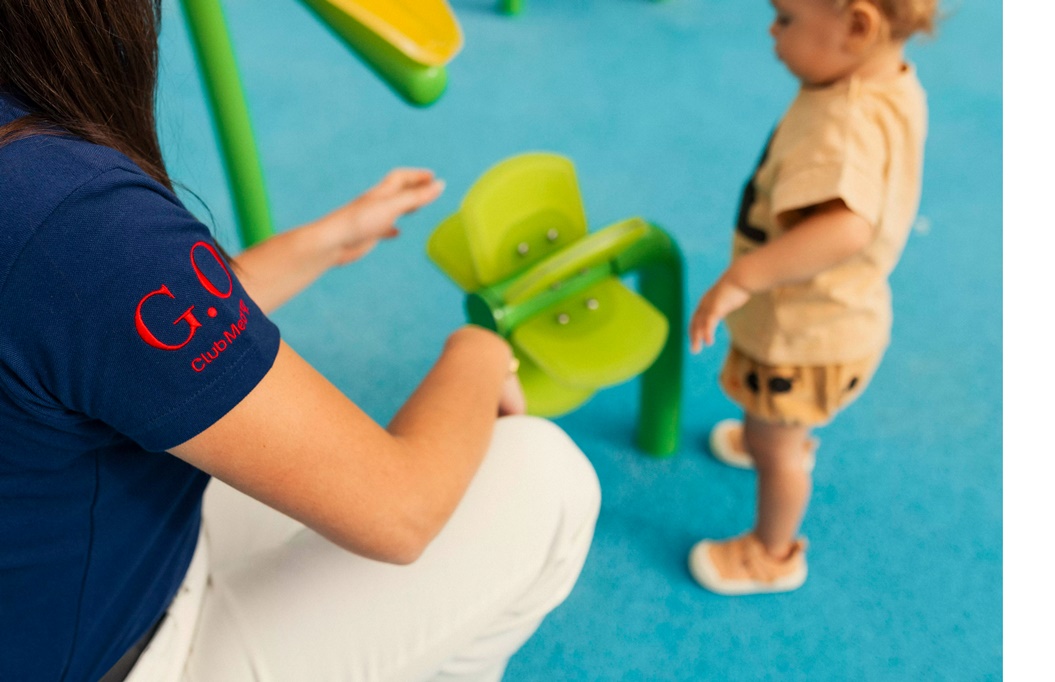Understanding and developing assertiveness
Assertiveness is an essential skill in the professional world. It enables clear, effective, and respectful communication.

Assertiveness is an essential skill in the professional world. It enables clear, effective, and respectful communication. An assertive person can express themselves and stand up for their rights and opinions with respect and kindness. In this article, discover what it means to be assertive, the benefits of adopting assertive behavior, and how to develop assertiveness at work.

What is an assertive person?
An assertive person is someone who can express their thoughts, opinions, and emotions clearly and directly while respecting others. Above all, it is a relational skill—a form of non-violent communication that is key to building positive relationships among colleagues. The word assertiveness comes from the English “to assert,” meaning to affirm oneself. Being assertive means daring to speak up without overpowering others. Naturally, an assertive person stands their ground but respects the opinions and feelings of others. They know how to express disagreements constructively and respond appropriately to criticism and conflict. There’s no need to submit or be aggressive—assertiveness is a true sign of confidence and self-esteem, not ego. Today, assertiveness is one of the most valued and sought-after soft skills among recruiters.
How to develop assertiveness at work
Being assertive at work is important—it’s a highly valued quality. Several simple yet effective techniques can help develop assertiveness:
Start with active listening and empathy. These skills make it easier to understand others’ perspectives and emotions. Encourage your counterpart to express themselves freely and avoid interrupting them. Non-violent communication helps prevent misunderstandings and conflicts. It’s also important to use positive statements and “I” messages to express feelings without judging or attacking the other person. This personal approach prevents the listener from feeling blamed or targeted. Body language plays a key role. Adopt an open and confident posture—stand tall, maintain eye contact, use expressive yet controlled gestures, and be aware of your facial expressions. Every gesture matters. Assertiveness is not innate, but anyone can learn it.

The benefits of assertiveness in the workplace
Assertiveness offers many benefits for both companies and employees. This interpersonal skill creates a more positive work environment and strengthens collaboration. It improves professional relationships and teamwork. When assertiveness is practiced, relationships become honest and healthy—everyone feels heard, respected, and free to express themselves. Assertive behavior also reduces conflicts and misunderstandings within teams. In addition, it contributes to higher productivity and job satisfaction. Assertiveness is also a key management skill. Good leadership requires being assertive—adopting a firm yet respectful attitude while fostering strong relationships within teams. By being assertive, leaders are better equipped to identify problems, manage conflicts, and rebuild smooth, productive working relationships.
How to develop assertiveness
To strengthen assertiveness, you can attend specialized training programs in assertive and effective communication.
Assertiveness training
Assertiveness training programs teach practical skills to improve communication. Participants receive constructive and personalized feedback to enhance their behavior. These trainings help handle various professional situations with confidence and balance. Online resources and virtual classes also offer tools to build communication skills. Beyond formal training, personal development is key. Practicing self-awareness and emotional management exercises helps boost self-confidence and handle delicate situations more effectively.
Soft skills and assertiveness
Assertiveness is one of the most important and in-demand soft skills. It helps everyone communicate effectively within an organization. Daring to speak up, expressing feelings, and defending ideas while respecting others strengthens teamwork and conflict resolution abilities. Assertiveness also contributes to emotional intelligence and personal growth—both essential for gaining confidence and thriving daily, both personally and professionally. Increasingly sought after by recruiters, assertiveness has become a vital professional skill. It promotes clear, constructive, and respectful communication. An assertive attitude has a real impact on self-confidence, workplace relationships, productivity, and conflict reduction. Adopting an assertive mindset is a major asset for creating a collaborative, productive, and harmonious work environment.

Discover more
-
 Our Stories Discover the stories of our employees, their reasons for choosing Club Med and their career progression! See more
Our Stories Discover the stories of our employees, their reasons for choosing Club Med and their career progression! See more -
 Frequently Asked Questions Need some clarification? Here are some of the most common questions we hear about our processes. See more
Frequently Asked Questions Need some clarification? Here are some of the most common questions we hear about our processes. See more -
 Nice to meet you! Our mission is to create a haven of happiness and tranquility in some of the world's most stunning locations. Dive into our philosophy and values to see if we're a perfect match for you! See more
Nice to meet you! Our mission is to create a haven of happiness and tranquility in some of the world's most stunning locations. Dive into our philosophy and values to see if we're a perfect match for you! See more -
 Why become a Nurse at Club Med? Would you like to practice your profession in another country, in an often idyllic setting and in contact with a multitude of different cultures? See more
Why become a Nurse at Club Med? Would you like to practice your profession in another country, in an often idyllic setting and in contact with a multitude of different cultures? See more -
 Work management and gratitude: the best practices Management at work is based on several fundamental pillars, find out more in this article! See more
Work management and gratitude: the best practices Management at work is based on several fundamental pillars, find out more in this article! See more -
 What is the job of a Bar Manager at Club Med? One of the professionals working in these establishments is the Bar Manager. Here's what you need to know about the job of Bar Manager: role, training, missions, etc. See more
What is the job of a Bar Manager at Club Med? One of the professionals working in these establishments is the Bar Manager. Here's what you need to know about the job of Bar Manager: role, training, missions, etc. See more -
 Looking to Work Abroad with Club Med? Here's What You Need to Know If you're considering exploring the world while contributing to a vibrant team, Club Med has numerous employment opportunities both in your country of residence and overseas. See more
Looking to Work Abroad with Club Med? Here's What You Need to Know If you're considering exploring the world while contributing to a vibrant team, Club Med has numerous employment opportunities both in your country of residence and overseas. See more -
 Club Med: calling all talents looking for a great new experience to add to their CV! Club Med, inventor and leader in premium all-inclusive holidays, is now launching recruitment for the spring-summer season. See more
Club Med: calling all talents looking for a great new experience to add to their CV! Club Med, inventor and leader in premium all-inclusive holidays, is now launching recruitment for the spring-summer season. See more -
 What is a Family Manager at Club Med? Managing the Family Division teams is the number-one mission of the Club Med Family Manager. See more
What is a Family Manager at Club Med? Managing the Family Division teams is the number-one mission of the Club Med Family Manager. See more -
 Becoming a Floor Manager at Club Med At Club Med, the Housekeeper is the main person responsible for the maintenance of hotel rooms. See more
Becoming a Floor Manager at Club Med At Club Med, the Housekeeper is the main person responsible for the maintenance of hotel rooms. See more -
 Hotel room service jobs at Club Med Room service is an essential part of ensuring customer satisfaction and contributing to the reputation of Club Med. See more
Hotel room service jobs at Club Med Room service is an essential part of ensuring customer satisfaction and contributing to the reputation of Club Med. See more -
 10 good reasons to do a seasonal job Career plans, training, human contributions, here are 10 good reasons to do a season. See more
10 good reasons to do a seasonal job Career plans, training, human contributions, here are 10 good reasons to do a season. See more -
 Discovering the Spa Therapist profession at Club Med Spa Therapist at Club Med is a rewarding job on both a professional and personal level and offers great opportunities for advancement! See more
Discovering the Spa Therapist profession at Club Med Spa Therapist at Club Med is a rewarding job on both a professional and personal level and offers great opportunities for advancement! See more -
 Discover the different roles of a Restaurant and Bar Manager at Club Med In our Club Med Resorts, food is served both at the table in the restaurants and by the plate. See more
Discover the different roles of a Restaurant and Bar Manager at Club Med In our Club Med Resorts, food is served both at the table in the restaurants and by the plate. See more -
 Club Med onboarding for new employees Reception, catering, maintenance, etc., whatever their position, our employees benefit from a quality welcome within our company. See more
Club Med onboarding for new employees Reception, catering, maintenance, etc., whatever their position, our employees benefit from a quality welcome within our company. See more -
 Become a Club Med cook! To let your imagination run wild and create the finest dishes, become a Club Med Cook! See more
Become a Club Med cook! To let your imagination run wild and create the finest dishes, become a Club Med Cook! See more -
 Wellness professions at Club Med The wellness field is one of Club Med's most important job families. Here's a look at the different jobs available in this sector in our Resorts. See more
Wellness professions at Club Med The wellness field is one of Club Med's most important job families. Here's a look at the different jobs available in this sector in our Resorts. See more -
 Why become a Wine Consultant at Club Med? To ensure that we meet our quality standards, Club Med focuses on providing premium services. See more
Why become a Wine Consultant at Club Med? To ensure that we meet our quality standards, Club Med focuses on providing premium services. See more -
 Children's activities: what Club Med's animation teams have to offer Here's an overview of the many activities offered by our entertainment teams for children and teenagers (4 months to 17 years). See more
Children's activities: what Club Med's animation teams have to offer Here's an overview of the many activities offered by our entertainment teams for children and teenagers (4 months to 17 years). See more -
 Club Med: 24 hours in the life of a Housekeeper This versatile professional masters the specific practices of the hotel industry regarding hygiene and safety. See more
Club Med: 24 hours in the life of a Housekeeper This versatile professional masters the specific practices of the hotel industry regarding hygiene and safety. See more -
 Club Med: combining employment and disability At Club Med, all positions are open to people with disabilities. See more
Club Med: combining employment and disability At Club Med, all positions are open to people with disabilities. See more -
 Club Med is looking for 400 talents this summer Surpassing yourself, developing your skills and creating unique bonds are at the heart of the Club Med experience. See more
Club Med is looking for 400 talents this summer Surpassing yourself, developing your skills and creating unique bonds are at the heart of the Club Med experience. See more -
 Find a job for the winter season at Club Med If you're wondering where to apply for a job this winter, Club Med has all the answers! See more
Find a job for the winter season at Club Med If you're wondering where to apply for a job this winter, Club Med has all the answers! See more -
 Discovering the bartender's job at Club Med Becoming a Club Med G.O Bartender is professionally fulfilling in more ways than one. See more
Discovering the bartender's job at Club Med Becoming a Club Med G.O Bartender is professionally fulfilling in more ways than one. See more -
 Become a Club Med G.O® Do you have a passion for travel, dreamy destinations and an unparalleled sense of service and detail? Then you're the right person to become a Club Med G.O®. See more
Become a Club Med G.O® Do you have a passion for travel, dreamy destinations and an unparalleled sense of service and detail? Then you're the right person to become a Club Med G.O®. See more -
 Club Med Exclusive Collection : our luxury range and its professions The Exclusive Collection is Club Med's version of the luxury range. On the menu: exclusive premium services in the world's most beautiful locations. See more
Club Med Exclusive Collection : our luxury range and its professions The Exclusive Collection is Club Med's version of the luxury range. On the menu: exclusive premium services in the world's most beautiful locations. See more -
 Charlène, Training Project Manager in our Paris Office Discover the experience of Charlène! See more
Charlène, Training Project Manager in our Paris Office Discover the experience of Charlène! See more -
 5 good reasons to work in the restaurant department at Club Med Whatever your profession and level of experience, here are 5 good reasons to work in the restaurant field at Club Med. See more
5 good reasons to work in the restaurant department at Club Med Whatever your profession and level of experience, here are 5 good reasons to work in the restaurant field at Club Med. See more -
 Working at Club Med: qualities to highlight in your resume to live this experience Working at Club Med, combined with a rewarding job, is a challenging experience for our G.Os and G.Es, the ambassadors of our brand. See more
Working at Club Med: qualities to highlight in your resume to live this experience Working at Club Med, combined with a rewarding job, is a challenging experience for our G.Os and G.Es, the ambassadors of our brand. See more -
 Become a Spa Manager at Club Med Being a Spa Manager requires skills in aesthetics, management and logistics. See more
Become a Spa Manager at Club Med Being a Spa Manager requires skills in aesthetics, management and logistics. See more -
 Working at Club Med: More Than Just a Professional Experience Why Choose to Work at Club Med: Discovering a Unique Professional Experience See more
Working at Club Med: More Than Just a Professional Experience Why Choose to Work at Club Med: Discovering a Unique Professional Experience See more -
 Club Med: the different careers of G.O.s The G.Os, true emblems of Club Med, inspired Dany Boon to make his film "La Vie pour de Vrai", highlighting their iconic role and impact. See more
Club Med: the different careers of G.O.s The G.Os, true emblems of Club Med, inspired Dany Boon to make his film "La Vie pour de Vrai", highlighting their iconic role and impact. See more -
 Work management and gratitude: the best practices Explore the best management and recognition practices at work to boost team motivation and engagement. See more
Work management and gratitude: the best practices Explore the best management and recognition practices at work to boost team motivation and engagement. See more -
 Club Med: the top-of-the-range Spa Treat yourself to a moment of relaxation alone or as a couple in one of Club Med's top-of-the-range spas. See more
Club Med: the top-of-the-range Spa Treat yourself to a moment of relaxation alone or as a couple in one of Club Med's top-of-the-range spas. See more -
 Well-being at work and personal development 1 Personal development - 2 Management - 3 Recognition - 4 The right working conditions and environment. Discover the advantages Club Med has to offer for professional fulfilment. See more
Well-being at work and personal development 1 Personal development - 2 Management - 3 Recognition - 4 The right working conditions and environment. Discover the advantages Club Med has to offer for professional fulfilment. See more -
 How to prepare your interview for a summer job at Club Med Getting a summer job at Club Med is much more than just a seasonal job. As a unique moment spent in an enchanting setting, this experience transforms the lives of our G.Os and G.Es (Gentle Organizers and Gentle Employees) on many levels. See more
How to prepare your interview for a summer job at Club Med Getting a summer job at Club Med is much more than just a seasonal job. As a unique moment spent in an enchanting setting, this experience transforms the lives of our G.Os and G.Es (Gentle Organizers and Gentle Employees) on many levels. See more -
 What summer jobs are available? Are you looking for a job: Summer Season? Discover all the jobs available for the summer season See more
What summer jobs are available? Are you looking for a job: Summer Season? Discover all the jobs available for the summer season See more -
 Working with your Youth Activity Leaders' Certificate at Club Med If you have a Youth Activity Leaders' Certificate, you can apply to Club Med for a seasonal contract and gain a rewarding experience on a human and professional level. See more
Working with your Youth Activity Leaders' Certificate at Club Med If you have a Youth Activity Leaders' Certificate, you can apply to Club Med for a seasonal contract and gain a rewarding experience on a human and professional level. See more -
 Doing a gap year at Club Med What to do during a gap year? This is a question that many students around the world ask themselves. See more
Doing a gap year at Club Med What to do during a gap year? This is a question that many students around the world ask themselves. See more -
 Become a Restaurant Employee at Club Med An essential member of the Club Med team, the Restaurant Employee coordinates the work of the kitchen, the bar and the dining room. See more
Become a Restaurant Employee at Club Med An essential member of the Club Med team, the Restaurant Employee coordinates the work of the kitchen, the bar and the dining room. See more -
 Our jobs in Hospitality & Catering Discover all the jobs available at Club Med See more
Our jobs in Hospitality & Catering Discover all the jobs available at Club Med See more -
 Our jobs in Childcare Discover all the jobs available at Club Med See more
Our jobs in Childcare Discover all the jobs available at Club Med See more -
 Our jobs in Well-being Discover all the jobs available at Club Med See more
Our jobs in Well-being Discover all the jobs available at Club Med See more -
 Our jobs in Sports Discover all the jobs available at Club Med See more
Our jobs in Sports Discover all the jobs available at Club Med See more -
 Our jobs in Performance Arts Discover all the jobs available at Club Med See more
Our jobs in Performance Arts Discover all the jobs available at Club Med See more -
 Our jobs in Support & Sales Discover all the jobs available at Club Med See more
Our jobs in Support & Sales Discover all the jobs available at Club Med See more -
 Club Med innovates with a new "Workation" experiment Club Med, pioneer and world leader in upscale all-inclusive vacations invents the "Workation" concept. See more
Club Med innovates with a new "Workation" experiment Club Med, pioneer and world leader in upscale all-inclusive vacations invents the "Workation" concept. See more -
 Welcome to our new Club Med Boutique-Apartment in Lyon! In 2015, Club Med opened its first Boutique-Apartement on the legendary Champs-Élysées avenue. See more
Welcome to our new Club Med Boutique-Apartment in Lyon! In 2015, Club Med opened its first Boutique-Apartement on the legendary Champs-Élysées avenue. See more -
 Charline, Head of Data Science at Club Med I've been lucky enough to be given more and more important tasks, which has allowed me to gain autonomy. See more
Charline, Head of Data Science at Club Med I've been lucky enough to be given more and more important tasks, which has allowed me to gain autonomy. See more -
 Club Med: making sustainable tourism a priority! To join Club Med is to become part of a major group, renowned for its sumptuous Resorts in all parts of the world, and famous for its entertainment and the tasty dishes served in its restaurants. See more
Club Med: making sustainable tourism a priority! To join Club Med is to become part of a major group, renowned for its sumptuous Resorts in all parts of the world, and famous for its entertainment and the tasty dishes served in its restaurants. See more -
 The Club Med application process Are you a professional in the hospitality, catering or childcare sectors who would like to apply for a job at Club Med? Find out more about the different steps in the recruitment process to join our teams. See more
The Club Med application process Are you a professional in the hospitality, catering or childcare sectors who would like to apply for a job at Club Med? Find out more about the different steps in the recruitment process to join our teams. See more -
 Charlevoix, an adventure all year long for our G.Os & G.Es In December 2021 opened the first Club Med Resort in Canada, Québec Charlevoix which immediately became the first all-inclusive Resort in the area. See more
Charlevoix, an adventure all year long for our G.Os & G.Es In December 2021 opened the first Club Med Resort in Canada, Québec Charlevoix which immediately became the first all-inclusive Resort in the area. See more -
 Working at Club Med: much more than just work experience Working for us on a seasonal, student or permanent basis is a rewarding experience in every way. See more
Working at Club Med: much more than just work experience Working for us on a seasonal, student or permanent basis is a rewarding experience in every way. See more -
 Family Manager: what are their duties? The Family Manager organizes and leads fun activities for children and teenagers in clearly defined age categories. See more
Family Manager: what are their duties? The Family Manager organizes and leads fun activities for children and teenagers in clearly defined age categories. See more -
 Club Med Jobs TikTok or using digital technology for recruitment Club Med Jobs is THE website dedicated to recruitment and career strategy. In this age of digitalisation, Club Med is also using the power of the TikTok social network to show future talent the different facets of life as a Club Med employee... See more
Club Med Jobs TikTok or using digital technology for recruitment Club Med Jobs is THE website dedicated to recruitment and career strategy. In this age of digitalisation, Club Med is also using the power of the TikTok social network to show future talent the different facets of life as a Club Med employee... See more -
 Career change: finding your way at Club Med Find out why Club Med offers interesting opportunities for career change-seekers looking for fulfillment in their work. See more
Career change: finding your way at Club Med Find out why Club Med offers interesting opportunities for career change-seekers looking for fulfillment in their work. See more -
 Summer job: what you need to know Here's everything you need to know about summer jobs and their administrative aspects. Contract, salary, working conditions - we've got it all! See more
Summer job: what you need to know Here's everything you need to know about summer jobs and their administrative aspects. Contract, salary, working conditions - we've got it all! See more -
 Club Med jobs: know-how and the art of mastering operational excellence in your job Find out why it's essential to develop the know-how specific to your job, and how to achieve operational excellence. See more
Club Med jobs: know-how and the art of mastering operational excellence in your job Find out why it's essential to develop the know-how specific to your job, and how to achieve operational excellence. See more -
 How do the various training courses offered by Club Med work? Training, support, skills development... these are the strong values that make up our DNA. Discover a selection of our training highlights. See more
How do the various training courses offered by Club Med work? Training, support, skills development... these are the strong values that make up our DNA. Discover a selection of our training highlights. See more -
 CSR and HR Club Med: the environment at the heart of our priorities Find out how Club Med combines its CSR and HR policies to act in favour of the environment, while involving its employees in Resorts and offices. See more
CSR and HR Club Med: the environment at the heart of our priorities Find out how Club Med combines its CSR and HR policies to act in favour of the environment, while involving its employees in Resorts and offices. See more -
 Becoming eGO Première phrase See more
Becoming eGO Première phrase See more -
 Maintenance technician at Club Med: a key job in exceptional locations At Club Med, the role of the Maintenance Technician is essential to ensure that the equipment, facilities and infrastructure run smoothly. See more
Maintenance technician at Club Med: a key job in exceptional locations At Club Med, the role of the Maintenance Technician is essential to ensure that the equipment, facilities and infrastructure run smoothly. See more -
 Title blog article First sentence of the article. See more
Title blog article First sentence of the article. See more -
 How to Introduce Yourself in a Job Interview During a job interview, the first impression is extremely important and can be decisive. On average, it takes less than 10 minutes for a recruiter to decide whether to continue the recruitment process. See more
How to Introduce Yourself in a Job Interview During a job interview, the first impression is extremely important and can be decisive. On average, it takes less than 10 minutes for a recruiter to decide whether to continue the recruitment process. See more -
 What is a Resort? Discover what a Resort is, its all-inclusive services and the different types offered by Club Med for unforgettable vacations. See more
What is a Resort? Discover what a Resort is, its all-inclusive services and the different types offered by Club Med for unforgettable vacations. See more -
 How to Become a Ski Instructor at Club Med? A Ski Instructor is a professional passionate about mountain sports, fully committed to providing a unique experience. See more
How to Become a Ski Instructor at Club Med? A Ski Instructor is a professional passionate about mountain sports, fully committed to providing a unique experience. See more -
 From Ski Instructor to Environmental, Health, Hygiene, and Safety Director: an inspiring journey At Club Med, every journey is unique, and Patrick's story is a perfect example. Since joining in 1994 as a Ski Instructor, he has turned his experiences into opportunities to evolve within Club Med. See more
From Ski Instructor to Environmental, Health, Hygiene, and Safety Director: an inspiring journey At Club Med, every journey is unique, and Patrick's story is a perfect example. Since joining in 1994 as a Ski Instructor, he has turned his experiences into opportunities to evolve within Club Med. See more -
 Becoming a Chef de Partie: Everything You Need to Know The Chef de Partie plays an essential role in a professional kitchen. They ensure that services are optimally organized and that dishes are of impeccable quality. This experienced chef, a specialist in their field, is also responsible for a team, ensuring that our guests, the G.M (Gentle Members), enjoy a unique experience. Find out everything you need to know about this indispensable position in the Club Med culinary brigade. See more
Becoming a Chef de Partie: Everything You Need to Know The Chef de Partie plays an essential role in a professional kitchen. They ensure that services are optimally organized and that dishes are of impeccable quality. This experienced chef, a specialist in their field, is also responsible for a team, ensuring that our guests, the G.M (Gentle Members), enjoy a unique experience. Find out everything you need to know about this indispensable position in the Club Med culinary brigade. See more -
 How to Work the Seasons at Club Med: Guide and Tips Working as a seasonal employee at Club Med, especially in ski resorts, offers a unique experience. See more
How to Work the Seasons at Club Med: Guide and Tips Working as a seasonal employee at Club Med, especially in ski resorts, offers a unique experience. See more -
 Working in luxury at Club Med: opportunities and experiences Discover career opportunities in Club Med's luxury locations: dream destinations, training, and high-end experiences. Go for it! See more
Working in luxury at Club Med: opportunities and experiences Discover career opportunities in Club Med's luxury locations: dream destinations, training, and high-end experiences. Go for it! See more -
 Onboarding: How to Effectively Integrate New Hires Discover the key steps of onboarding at Club Med: 4C, tools, tips, and benefits for an effective and motivating integration of new hires. See more
Onboarding: How to Effectively Integrate New Hires Discover the key steps of onboarding at Club Med: 4C, tools, tips, and benefits for an effective and motivating integration of new hires. See more -
 Becoming a Kitchen Assistant The Complete Guide The Kitchen Assistant plays an essential role in the restaurant industry. They are indispensable within the culinary brigade to ensure the smooth running of a service. See more
Becoming a Kitchen Assistant The Complete Guide The Kitchen Assistant plays an essential role in the restaurant industry. They are indispensable within the culinary brigade to ensure the smooth running of a service. See more -
 Job Interview questions: Prepare Effectively Thorough preparation is essential for succeeding in a job interview. See more
Job Interview questions: Prepare Effectively Thorough preparation is essential for succeeding in a job interview. See more -
 Developing Soft Skills: Keys and Benefits at Club Med In the professional world, soft skills play a crucial role. See more
Developing Soft Skills: Keys and Benefits at Club Med In the professional world, soft skills play a crucial role. See more -
 Working as a Seasonal Employee in Winter: Opportunities and Tips Discover winter seasonal jobs at Club Med: most in-demand positions, benefits, key skills, and tips for thriving in a unique environment. See more
Working as a Seasonal Employee in Winter: Opportunities and Tips Discover winter seasonal jobs at Club Med: most in-demand positions, benefits, key skills, and tips for thriving in a unique environment. See more -
 How to Introduce Yourself in a Job Interview Learn how to successfully introduce yourself in an interview: practical examples, and advice on body language and communication to engage recruiters from the start. See more
How to Introduce Yourself in a Job Interview Learn how to successfully introduce yourself in an interview: practical examples, and advice on body language and communication to engage recruiters from the start. See more -
 Interning at Club Med: opportunities and benefits Doing an internship at Club Med in the fields of hospitality, entertainment, sports or well-being is an enriching experience for students and young professionals. See more
Interning at Club Med: opportunities and benefits Doing an internship at Club Med in the fields of hospitality, entertainment, sports or well-being is an enriching experience for students and young professionals. See more -
 Understanding and Developing Leadership Leadership plays a central role and has a major impact on a company's performance. See more
Understanding and Developing Leadership Leadership plays a central role and has a major impact on a company's performance. See more -
 Know-how: the key to your professional success Know-how and expertise are key to success. Discover our tips for improving your skills and boosting your career at Club Med. See more
Know-how: the key to your professional success Know-how and expertise are key to success. Discover our tips for improving your skills and boosting your career at Club Med. See more -
 Understanding and Showcasing Soft Skills at Work Soft skills are essential for achieving your goals. Discover how to improve your soft skills and make a difference in your career with Club Med. See more
Understanding and Showcasing Soft Skills at Work Soft skills are essential for achieving your goals. Discover how to improve your soft skills and make a difference in your career with Club Med. See more -
 Expertise and interpersonal skills: the keys to professional success Skills and interpersonal skills are essential for success in the professional world. See more
Expertise and interpersonal skills: the keys to professional success Skills and interpersonal skills are essential for success in the professional world. See more -
 Meet Aki from our Excursions team in Japan See more
Meet Aki from our Excursions team in Japan See more -
 Soft skills examples: key soft skills to highlight at Club Med Discover examples of soft skills sought at Club Med and learn how to highlight them effectively during a job interview. See more
Soft skills examples: key soft skills to highlight at Club Med Discover examples of soft skills sought at Club Med and learn how to highlight them effectively during a job interview. See more -
 Meet Sachin, Kitchen Chef at Club Med See more
Meet Sachin, Kitchen Chef at Club Med See more -
 Meet Daheen, Korean Childcare Coordinator at Club Med See more
Meet Daheen, Korean Childcare Coordinator at Club Med See more -
 Meet Natsumi, Water Sports Instructor at Club Med See more
Meet Natsumi, Water Sports Instructor at Club Med See more -
 How Soft Skills Can Transform Your Career at Club Med Soft skills, also known as know-how, refer to behavioral competencies and ways of acting that foster success in a professional environment. See more
How Soft Skills Can Transform Your Career at Club Med Soft skills, also known as know-how, refer to behavioral competencies and ways of acting that foster success in a professional environment. See more -
 Career Change: Reinvent Your Career with Club Med Jobs Thinking of switching careers? Learn how to make your retraining plans a reality and explore new opportunities with insights from Club Med. See more
Career Change: Reinvent Your Career with Club Med Jobs Thinking of switching careers? Learn how to make your retraining plans a reality and explore new opportunities with insights from Club Med. See more
























































































